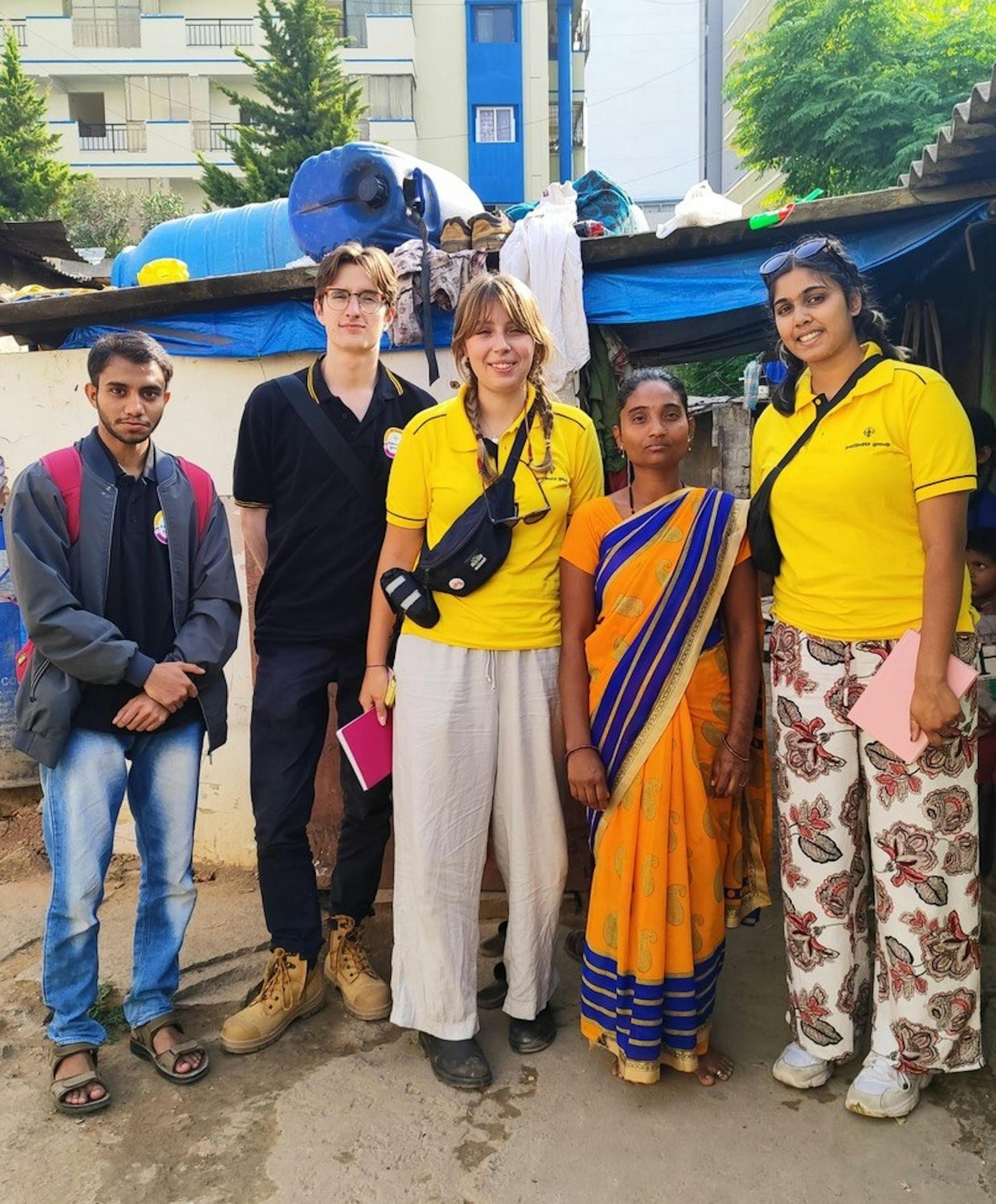UWA Biomedical Science student, Marina du Toit, recently added an international experience to her university journey, travelling to Bangalore, India to participate in the Pollinate Student Fellowship Program through the McCusker Centre for Citizenship.
Bringing her perspectives from Aboriginal Health and Wellbeing and Anatomy and Human Biology majors, Marina joined a small group of students from RMIT in India during January and February, conducting field research to support the work of a locally run social enterprise, the Pollinate Group.
“The Pollinate Group is dedicated to improving living conditions for some of the most marginalised people in the world – people living in urban settlements of informal housing,” she said.
“The Pollinate team are motivated to empower women by providing them with the tools and skills to run their own businesses while providing clean energy solutions to the people in their communities, like solar lights and solar fans. This is especially important considering most of these communities do not have a supply of electricity.”
Marina and her group interviewed 11 women involved with Pollinate about using the app provided by the organisation to help log sales and develop digital business skills.
“After the interviews, a big part of the project was to work as a team to define the app usage problems we identified during our interviews and recommend some solutions to Pollinate on how to address these,” Marina said.
Speaking about the impact she hoped her group’s work had made, Marina reflected on short and long-term benefits.
“I think immediately, our presence there allowed the women to see that their work is recognised and motivated them to keep striving for their goals. For the future, our research project provided Pollinate with recommendations that I believe can help improve the day to day lives of women and empower them to keep growing their skillsets,” she said.
Marina has previously worked with communities in remote WA, including through a McCusker Centre for Citizenship internship with Fair Game, and said that the Fellowship in India had broadened her experience and increased her understanding.
“I learnt that poverty presents itself completely differently in different contexts – issues affecting quality of life in India were different, and we saw the impact of illiteracy, lack of access to electricity, and lack of sewage infrastructure and services,” she said.
“The Fellowship opened my eyes to the reality of public health work – that small efforts can make big changes.
“I have learned that to ‘help’ you have to let go of your own expectations of how you want to ‘help’.
“At the end of the day, you want to contribute in a way that is sustainable. I am grateful to the Pollinate team for teaching me this invaluable perspective on public health,” Marina said.
“Along with my previous McCusker Centre internship, the Pollinate Student Fellowship was an experience that has given me a much greater motivation to be an active global citizen and strive to realise my public health dreams.”

